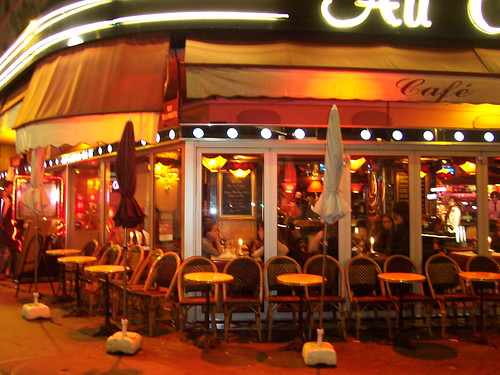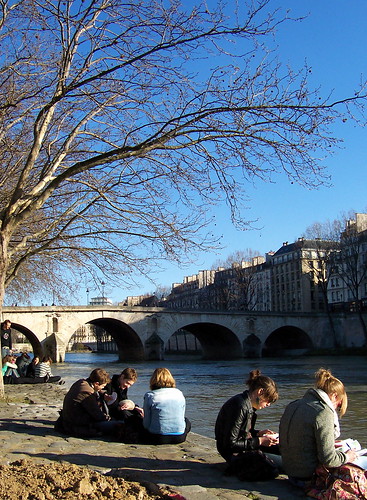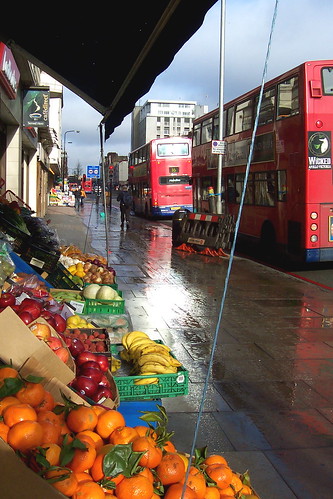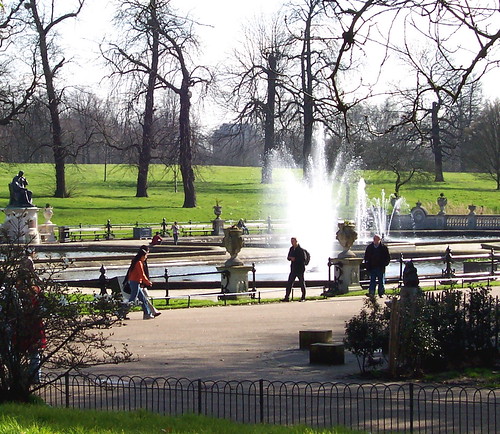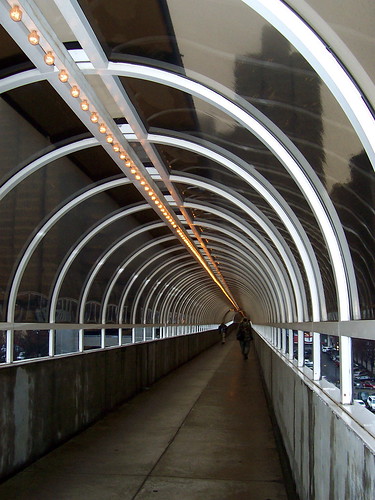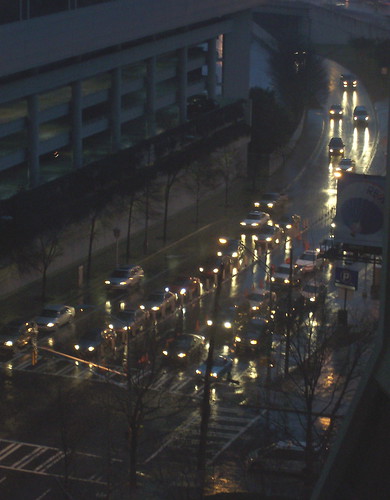On our date last night, as we were eating minestrone soup and salad, my husband and I discussed the trip we are taking over spring break, an overseas journey that will include four days in a country where everyone speaks French. When we planned the trip, I assured my husband that I speak French just fine. I may have exaggerated my fluency just a bit, but really, all I need are a few phrases, right?
I have a method. No matter where I am, in a cafe or in a restaurant or at the train station, I just point to someone who has the food or drink or train ticket I want and say, "la meme chose" which means "the same thing." Of course, the word
meme has gained such popularity in blogging circles that the phrase has the added bonus of sounding like some kind of secret blogging signal, sort of like a blogger drawing a computer in the sand.
Last time I was in the City Where the Guillotine Was Used, I was traveling with my little sister, Urban Sophisticate. The very first morning, when we were in line to buy our metro passes, I pointed to the man next to me who was buying a pass and said confidently, "La meme chose." My sister was wildly impressed at my fluency. Of course, it wasn't long before she figured out it was just about the only phrase I knew.
See, the problem is that in high school I took Spanish, which doesn't help at all when I am in country where everyone is speaking French. (Well, to be honest, it didn't help me all that much when I visited an island where everyone spoke Spanish, but that's another story. Let's just say native speakers of Spanish talk really, really fast.) Anyhow, I always get French mixed up with Spanish. I'll say things like, "Donde esta la Louvre?" And then there is the weird thing that they do with the verbs, like saying "have" when we would say "am." For example, I was trying to be all sophisticated and worldly on the train when I sat down next to my sister and said in French, "I am hungry." The man next to me gave me such a strange look that I whispered to my sister, "What did I say?"
Well, it turns out that hunger (faim) and woman (femme) are similar sounding words. So instead of saying, "I have hunger," which is what a native speaker would have said, what I had announced to my sister, in the manner of an American, which is to say that I talked to the whole car, was, "I am woman." Which, of course, is perfectly true.
I am actually quite good at reading and writing in languages other than English, but when it comes to speaking and listening: well, let's just say that lovely musical French sounds to me just like a rushing brook. Beautiful to listen to, but I've got no idea what the words say, or even where one word ends and another begins. My husband picks up accents and languages quickly, but he, too, took Spanish in high school and nothing he said last night indicated that he was going to be much help on the trip.
"Let's see," he said, "I know how to say that I have a red pen. I can ask someone to be my friend. I can ask what time it is."
He paused. "That's about it."
Luckily, Wonderful Smart Beautiful Daughter, who will be traveling with us, has taken five years of French. She seems to think that taking French in high school would not have helped either me or my husband anyhow, since we are both getting pretty old and senile, and high school was more than 25 years ago for us.
Her worry isn't the language barrier: she has reservations about traveling to the Romantic City of Light with her parents in tow. "You two are going to be ditching me all the time to go off and have sex."
"Mais oui," I said to her, "Je suis femme."
Or maybe it's "J'ai faim."
Eh. La meme chose.





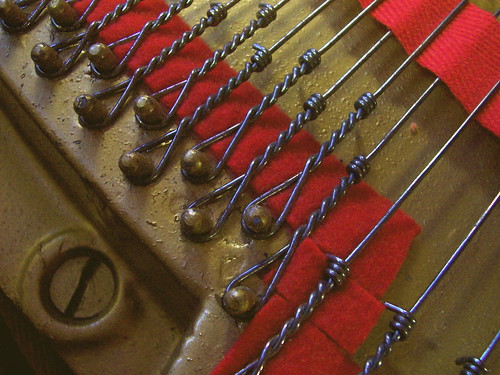


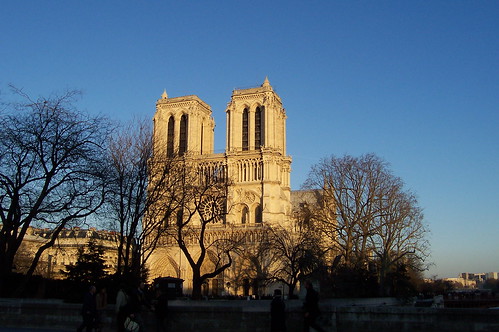
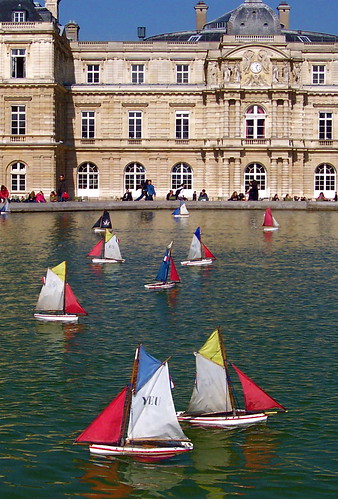
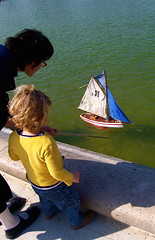 On sunny spring days in City Where Breakfast Includes Croissants and Pain Au Chocolat, there are all kinds of beautiful places to stop and take a rest. This morning after strolling along a canal hung with the branches of old trees and lined with trendy shops, we took the metro to the Big Gardens With Fountains Near Palace, snagged three green metal chairs, and soaked up the sun. Little kids were sailing boats in the fountain pools, carrying long sticks to push the sailboats with and yelling to each other excitedly in French. When we'd get a good gust of wind, the whole fleet of boats would glide from one side of the stone-edged pond to the other, and the kids would jump up and down, laughing.
On sunny spring days in City Where Breakfast Includes Croissants and Pain Au Chocolat, there are all kinds of beautiful places to stop and take a rest. This morning after strolling along a canal hung with the branches of old trees and lined with trendy shops, we took the metro to the Big Gardens With Fountains Near Palace, snagged three green metal chairs, and soaked up the sun. Little kids were sailing boats in the fountain pools, carrying long sticks to push the sailboats with and yelling to each other excitedly in French. When we'd get a good gust of wind, the whole fleet of boats would glide from one side of the stone-edged pond to the other, and the kids would jump up and down, laughing.